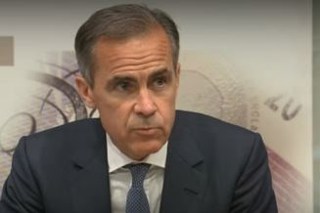Chancellor Rishi Sunak has outlined an investment of £12 billion to help manage the effects of coronavirus on UK households and business in his 2020 Budget.
In his first budget presentation, made in the House of Commons this lunch time (March 11), Sunak said that individuals would gain statutory sick pay after just four days and be able to self-isolate even if they did not exhibit symptoms of the virus by gaining a sick note, without having seen a doctor, by dialling the NHS’s ‘111’ telephone service.
He admitted that the measures, and the wider impact of the coronavirus, could mean that up to 20% of people could be off work at any one time, but insisted that while coronavirus’ effects will “have a significant effect on the UK economy, it will be temporary”.
And, acknowledging part of the impact of workforce shortages on businesses such as car retailers. Sunak said that the cost of having someone off work for up to 14 days would be refunded by Government.
A total of £2bn will be allocated to cover firms that lose out because staff are off sick, he said, although this will only apply to firms that employ fewer than 250 staff.
The Budget's measures to tackle the effects of coronavirus, which also included a pledge to help the NHS by providing "whatever it needs", came hours after The Bank of England anounced that it would cut interest rates from 0.75% back to a record low of 0.25% this morning.
Among other Budget statements that are set to impact the automotive retail sector was the announcement that Government will provide £403m for the plug-in car grant (PCIG), extending it to 2022/23.
The government will also provide £129.5 million to extend the plug-in grants for vans, taxis and motorcycles to 2022/23.
That move will be welcomed by retailers and the National Franchised Dealers Association (NFDA) which had urged Government to safeguard the plug-in car grant (PCIG) in order to “ensure a consistent and successful transition to electric vehicles” by 2035.
Commenting on the Government's announcement today, NFDA director, Sue Robinson, said: "NFDA will be liaising with the Government to understand the details of the incentives that will be provided to motorists for the purchase of ultra-low emission vehicles. We will keep our members informed."
Government's PCIG announcement came alonside a pledge to invest £500m to support the rollout of new rapid charging hubs, so that drivers are never more than 30 miles away from being able to charge up their electric vehicle (EV).
There was also a freeze on fuel duty, although the VAT relief that certain sectors currently receive through the use of red diesel will be restricted.
The Chancellor said that the rail, fishing and farming industries would not be affected by the new fuel duty ruling – which will be introduced in two years’ time – however.
Two weeks ahead of an increase in the National Living Wage, Sunak also announced new targets for the salary ruling.
Government will increase the national living wage to two thirds of median earnings by 2024, he said, a rise that will take the hourly rate to £10.50.
UK growth forecasts
The Budget conceded that the UK economy was expected to shrink as a result of the coronavirus outbreak.
However, forecasts provided to the Chancellor related to GDP growth had yet to take into account the impact of the outbreak.
The growth forecasts showed that the UK economy was expected to grow slowly over the next five years, with this year’s forecast having been revised from 1.4% in the 2019 Spring Statement to 1.1% this time around.
In the years ahead, growth was predicted to be 1.8% in 2021 (up from 1.6%), 1.5% (down from 1.6%) in 2022, 1.3% (down from 1.6%) in 2023, and 1.4% in 2024.
Sunak claimed that his Budget, which laid down a plan for £170bn of funding investment over the next five years would ensure that growth will be 0.5% higher than it otherwise would have been, increasing long-term productivity by 2.5%.
He also said that debt is forecast to fall over the course of this parliament, going down from 79.5% of GDP this year to 75.2% in 2024/25.



















Login to comment
Comments
No comments have been made yet.